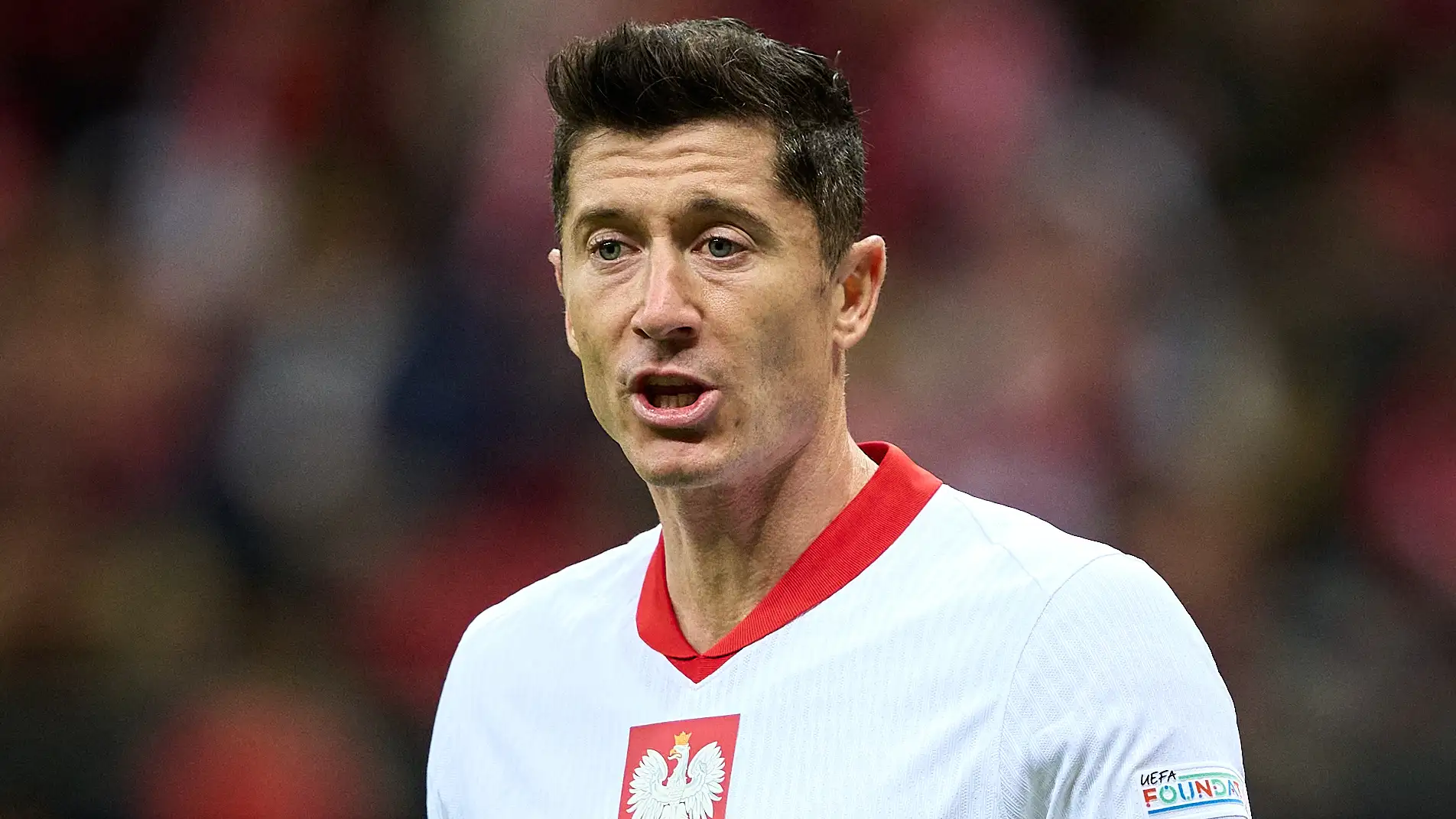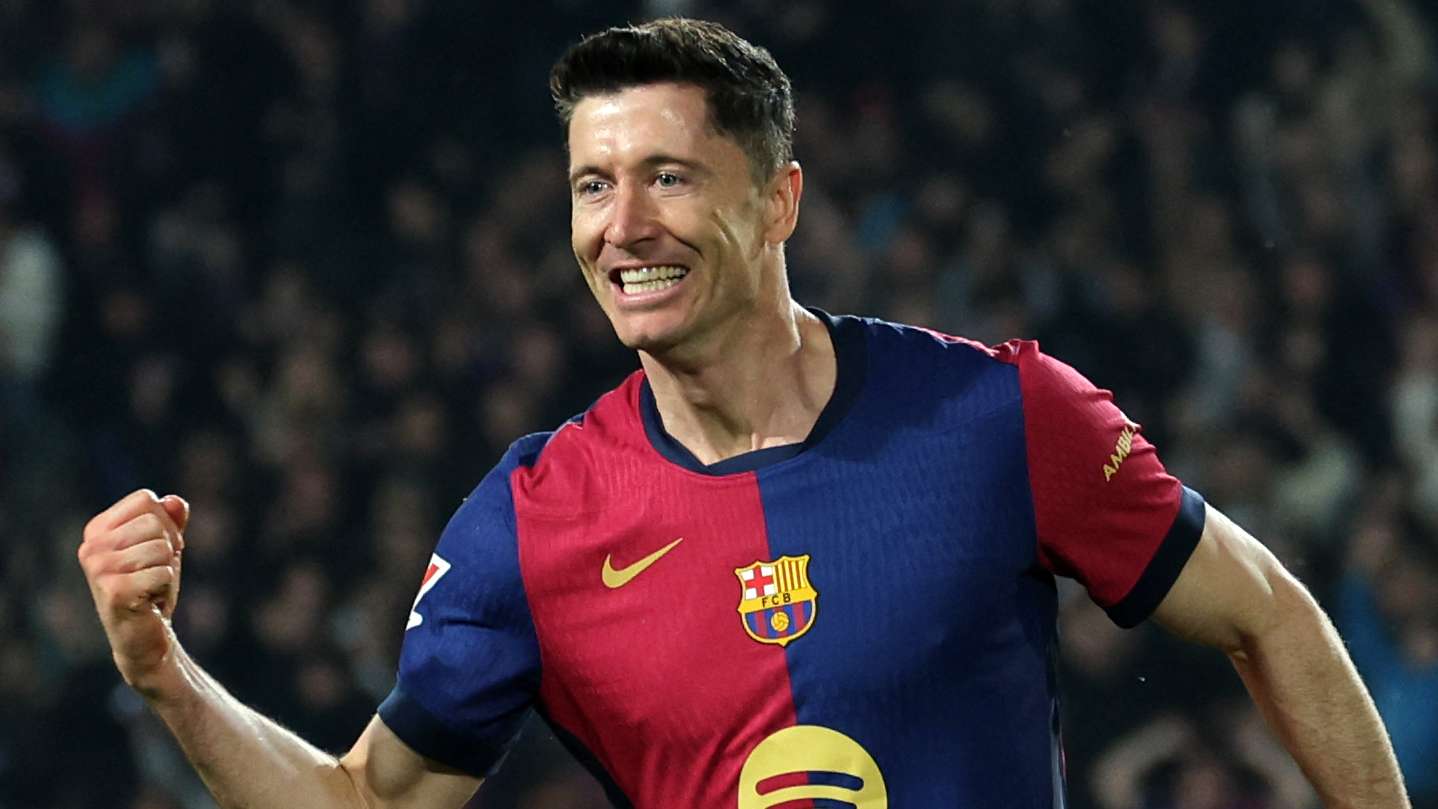
“I Don’t Like the Gesture” – Robert Lewandowski Slammed for Pulling Out of International Duty
Barcelona Star Sparks Debate as Poland Prepare for Vital World Cup Qualifier Against Finland
In a move that has sparked widespread debate across Poland and beyond, national team captain Robert Lewandowski has opted out of Poland’s crucial June fixtures — including a World Cup qualifier against Finland — citing fatigue after a demanding club season with Barcelona. While the striker’s decision may seem understandable on the surface, it hasn’t sat well with everyone back home, especially Polish football legend and former federation president Zbigniew Boniek.
Lewandowski’s absence from the squad has opened the door to a broader conversation — not just about player burnout, but about leadership, loyalty, and responsibility at the international level.
What Exactly Happened?
Earlier this week, Robert Lewandowski, fresh off a goal-packed season with FC Barcelona, took to social media to announce his withdrawal from Poland’s upcoming matches in June. The announcement came as a bit of a surprise, especially with Poland set to face Moldova in a friendly and Finland in a high-stakes World Cup qualifying match.
In his statement, the 36-year-old explained that both he and Poland’s coaching staff had reached a mutual decision to allow him to rest during the international break. “Playing in red and white has always been a dream come true for me,” Robert Lewandowski wrote, “but sometimes your body gives you a signal that it needs a temporary rest.”
He went on to emphasize that his heart remained with the team and that he would be cheering for his compatriots from the sidelines. A respectful, heartfelt message — but not everyone is buying it.
Zbigniew Boniek: Respectful, But Not Impressed
One person who clearly wasn’t thrilled with Robert Lewandowski’s gesture is Zbigniew Boniek, one of Poland’s most respected footballing figures and a former head of the Polish Football Association (PZPN). Speaking on the show Prawda Futbolu, Boniek didn’t hold back:
“I would like to extend his vacation… the captain of the national team. As for me, I wouldn’t have done that. Robert did it and I respect him, but I don’t like the gesture.”
That phrase — “I don’t like the gesture” — quickly became the talking point across Polish sports media. For many fans and pundits, it hit on a deeper concern: when your captain — your talisman, your leader — pulls out of a must-win qualifier, what kind of message does that send to the rest of the squad?
A Physically Demanding Season at Barcelona

FBL-ESP-LIGA-BARCELONA-OSASUNA
To be fair to Robert Lewandowski, the 2024–25 season has been nothing short of grueling. The striker played week in, week out in both domestic and European competitions, shouldering much of Barcelona’s attacking burden. He ended the campaign with a staggering 42 goals in all competitions, reaching the 100-goal milestone in Barça colors in record time.
At 36,Robert Lewandowski is still playing like a man several years younger, but even he has limits. The physical toll of the La Liga grind, combined with international commitments and the weight of expectations, has clearly taken its toll.
And he’s not alone. Players around the world are increasingly voicing concerns over the relentless calendar — with games crammed into every possible window and little time to properly recover.
In that context, a break — especially one mutually agreed upon with the national team coach — might not be so controversial after all.
Leadership Under the Microscope
Still, there’s no denying the symbolic weight of Robert Lewandowski’s absence. He’s not just another senior player — he’s the captain of Poland, the face of a generation, and arguably the country’s most iconic player since Boniek himself.
Whether he likes it or not, Robert Lewandowski’s decisions are seen not just through the lens of practicality, but of leadership. For many fans, a true captain is the one who shows up no matter what — sore muscles, personal fatigue, or not.
That’s what makes Boniek’s comments so pointed. He didn’t question Robert Lewandowski’s talent, or his service to the national team over the years. What he took issue with was the symbolism of stepping aside when the stakes are high.
And Poland’s qualifier against Finland isn’t just another game. It’s a fixture that could heavily influence their route to the 2026 World Cup.
A Divided Fan Base
Unsurprisingly, Polish football fans are split down the middle on the issue. Social media lit up with differing opinions in the wake of the announcement. Some backed Robert Lewandowski fully, pointing out his years of dedication and the right of any player — even a captain — to prioritize their health.
Others echoed Boniek’s sentiments, arguing that legends are defined not only by the goals they score but by the moments they step up when their country needs them most.
One fan put it succinctly: “Robert gave us everything for a decade. But it’s hard to explain to my 10-year-old why the captain isn’t playing in the biggest game of the year.”
What Comes Next for Robert Lewandowski?
Looking ahead, Robert Lewandowski’s future is full of questions — both at the international and club level. He’s entering the final year of his contract with Barcelona, though he does have an option to extend it until 2027. For now, there’s no indication that he plans to hang up his boots anytime soon.
But with the Polish team entering a transitional phase, the question remains: will Robert Lewandowski be a central part of the national side heading into the next World Cup cycle? Or will he slowly begin to take a step back, opening the door for younger talent?
One thing is certain — the eyes of a nation will be watching closely.
The Bigger Picture: Burnout vs. Responsibility
At the heart of this whole debate is a much bigger issue — the balance between professional demands and national pride. We ask so much of modern footballers. Endless matches, international flights, commercial obligations, media appearances… it’s no wonder that even the strongest players eventually need to hit pause.
But at the same time, football is built on moments of sacrifice, of players putting country above comfort.
Robert Lewandowski’s decision may not sit well with everyone, but it reflects a growing truth in modern football: physical exhaustion is real, and managing it — even when it means missing out on important matches — may be necessary for longevity.
For Poland, the hope will be that Robert Lewandowski returns refreshed, focused, and ready to help lead them into the next chapter. Whether that’s as captain or mentor, only time will tell.
Until then, the debate rages on.













































































There are no comments yet. Be the first to comment!